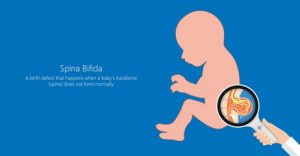What Is An AFP Test And How To Interpret The Test Result?
AFP full form is Alpha-fetoprotein, which is a protein usually produced in the liver of an unborn baby. AFP test is done to check the level of Alpha fetoprotein in blood. There will be AFP content in an expectant mother’s blood. An AFP test is also done for adults who aren’t expecting, high levels of which point to some liver disorders like a tumour.
In a developing fetus, AFP is produced in the liver, yolk sac, and in the GI tract. Healthy adults who aren’t pregnant have low AFP levels in their blood. If there is a high AFP level, then the individual has to perform additional diagnostic tests to determine the health condition.
Why Do I Need An Alpha Fetoprotein Test?
Normally AFP screening tests are carried out for women between 14 to 22 weeks of pregnancy. The results will be more accurate if the test is carried out in between 16 to 18 weeks. Not only does the test measure the level of Alpha-fetoprotein but it also measures Inhibin A, Estriol, and Human Chorionic Gonadotropin.

The doctor determines whether or not your baby has a congenital disability or congenital disability, through the quad screen results and your current age. AFP blood test is a part of the quad screening. A positive test doesn’t necessarily indicate a congenital disability. Some of the congenital disabilities and the reasons for AFP fluctuations are-
- Spina bifida- Also known as neural tube defect. It is a serious congenital disability where the brain or spinal cord has abnormal development. In the case of normal babies, the neural tube closes within 28 days of conception. But in babies with spina bifida, the neural tube won’t close. This causes a spinal cord defect.
- Down Syndrome- A chromosomal abnormality causing a developmental delay. Normally, all babies have 46 chromosomes. But babies with Down syndrome have an extra copy of their 21st chromosome. This condition is termed as trisomy. Trisomy 21, translocation down syndrome and mosaic Down syndrome are the different types of down syndrome.
- Error in determining the due date, since Alpha-fetoprotein level fluctuates throughout pregnancy. So, both you and your doctor must know your exact due date for accurate test results.
- Defect in the abdominal wall of the fetus. It is a defect in which the baby’s organs protrude through an opening formed in the abdomen. In such cases, the intestine, stomach or any other organ protrudes from the abdomen. Suppose if a child is detected with abdominal wall defect, the child should be checked for other birth defects. This is because the abdominal wall defect is connected to genetic disorders.
- Twins or multiple births, where more Alpha-fetoprotein is produced. The average AFP levels were double in women pregnant with twins than those pregnant with a single child. In women pregnant with triplets, the levels are much higher.
Whether You Require Further Tests Or Not Depends On The AFP Test Results
Women have the risk of having a baby with a congenital disability if they are
- Above 35 years of age.
- Member of a family with a history of congenital disability.
- Diabetic.
- Using harmful medications during pregnancy.

An AFP test is conducted for adults who aren’t pregnant to diagnose medical conditions of the liver, such as liver cancer, hepatitis, and cirrhosis. Not only does it help to detect liver cancer, but it also helps in detecting cancers affecting-
- Pancreas
- Biliary tract
- Stomach
- Testes
- Ovary
What Happens During An AFP Test?
A blood sample is taken for an Alpha-fetoprotein test. There is no special preparation needed prior to the Alpha-fetoprotein test. The procedure is conducted in a diagnostic lab.
A healthcare professional takes a blood sample by inserting a small needle into your vein. A test tube or vial collects the blood. The procedure takes a few minutes. The blood sample will be analyzed by a lab specialist. You can get the results within one or two weeks.
Sometimes urine samples are also collected to measure the Alpha fetoprotein level. But the serum levels will be lower when compared to blood.
What Do The Results Of AFP Blood Test Indicate?
Alpha fetoprotein normal range is below ten ng/ml. In the case of adults who aren’t pregnant, if the results show that there is a high level of AFP, then it indicates that you have liver disease.
The AFP levels fluctuate throughout pregnancy. In pregnant women, a higher AFP level indicates Spina bifida in your fetus. But sometimes the AFP levels can vary because you have made wrong calculations regarding the month you are in. The results will be inaccurate if you are pregnant either for a longer or shorter period than you actually are.

On the other hand, if you have low levels of Alpha-fetoprotein, then your unborn baby has Down syndrome. Sometimes the AFP in your blood can be abnormal if you’re having twins and in case of fetal death.
If the test results indicate abnormal AFP, it doesn’t indicate that the fetus has a congenital disability. It means more diagnostic tests need to be conducted. Sometimes you need to undergo another AFP test along with an ultrasound scan to make a diagnosis.
If the results are still unusual, then you have to undergo a test known as amniocentesis, where amniotic fluid is taken for diagnosis.
For women with elevated AFP levels, there is a chance of complications such as rupture of placenta accreta, membrane and increta.
If the result is negative, it doesn’t mean that there isn’t a risk. Even a low amount of Alpha-fetoprotein is connected with your fetus getting affected with Down Syndrome.

Suppose if you have delivered the baby too early, then your doctor will observe you closely.
AFP level in a pregnant woman rises from 14th week to 32 weeks. The AFP level will be around 10ng/ml to 150 ng/ml during that period.
In the case of a patient with liver cirrhosis, if the AFP level is more than 200 ng/ml, it indicates hepatocellular carcinoma.
Should I Have an AFP Test?
Alpha-fetoprotein test indicates fetal congenital disabilities. But you can consider some facts before opting the test-
- There is no risk for you and the fetus.
- Only points out the chances of defects of the unborn baby.
- Other tests should be done if the results indicate any abnormality.
Bottom Line
AFP test is a part of Triple screen tests. A triple screen test consists of a test for hCG and estriol. hCG is a hormone produced by the placenta, and estriol is produced by the unborn child. With these tests, a doctor can diagnose genetic disorders affecting a fetus.
Your doctor may ask you to perform cell-free DNA test if you are at risk of being pregnant with a child having a congenital disability. The benefit of this test is that it can be performed in the 10th week of pregnancy. The test results show the risk of developing any genetic disorder.
An Alpha-fetoprotein test is just a part of tests that you undergo while you’re pregnant. Most test results have positive results. Even if the test results are negative, there is a high chance that your baby is healthy. Also, it will be better if you enquire the details regarding the test before undergoing the AFP test.